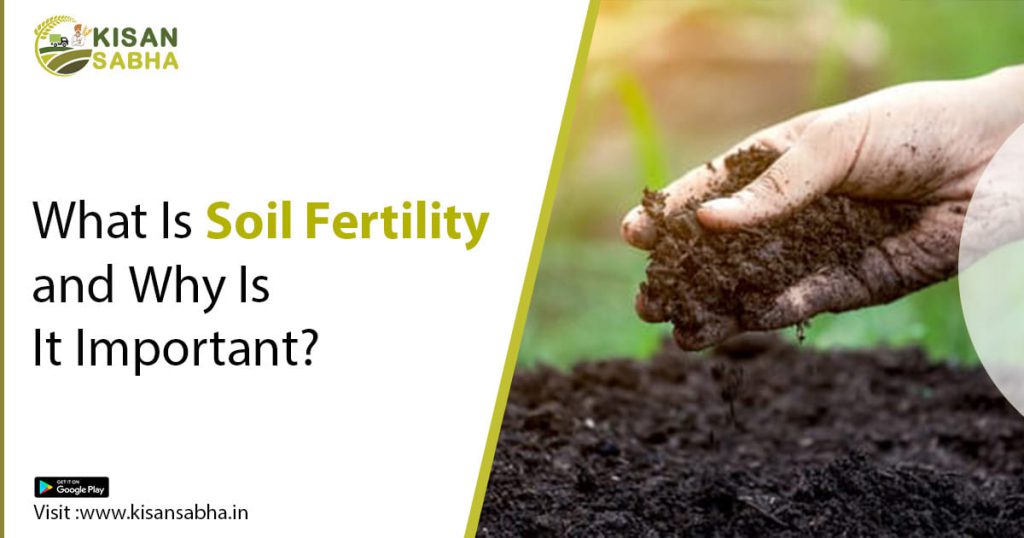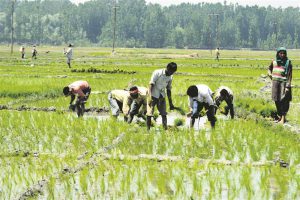Soil fertility is essential for plant development and determines production. Farmers benefit greatly from fertile fields. However, poor agricultural management can result in land depletion. It is vital to remember the value of fertilisers and environmentally friendly farming methods in enhancing field fertility. With proper soil fertility management practises, high yields can be obtained from poor fields. As a result, growers who understand how to protect soil fertility may maximise and sustain farmland productivity.
What Is Soil Fertility?
Soil fertility refers to a soil’s ability to establish favourable chemical, physical, and biological conditions while also providing all of the necessary nutrients for plant growth. Mineral nutrients are not food for plants (since plants make food on their own via photosynthesis), but rather a supplement that gives more energy for plant development.
Nutrients can accelerate plant development, fortify their immune systems against pests and diseases, and boost fertility. Fertile soil is ideal for crop cultivation because it keeps a high level of important micro- and macroelements, ensuring plant strength and health throughout the development cycle. It is impossible to overestimate the value of fertile soil. Fertility is thus one of the first factors agricultural producers examine when planning fieldwork.

Causes and Effects of Reduced Soil Fertility
When the amount of nutrients lost from the ground exceeds the amount provided, soil fertility declines. Plants will then draw nutrients from the ground. Reserves are exhausted until there are no more resources for plant development.
The following are the main reasons of soil fertility loss:
- The application of fertilisers without considering field conditions;
- Inappropriate cropping system
- Crop cultivation that is ongoing
- Extensive tillage
- Monoculture farming
- Full crop residue removal
- Soil erosion and land deterioration
- Unfavourable weather and climate.
Soil fertility loss has a severe detrimental influence not just on agricultural production but also on the surrounding ecosystems. Desertification, biodiversity loss, water pollution, and possibly harmful alterations in waterways are all consequences of land depletion.
How to Boost Soil Fertility?
Even fertile land begins to deteriorate over time, so fertility needs to be improved as well as protected. Field fertility can be increased through crop rotation, fertilisation, mixed planting, sowing green manure, mulching and fallowing. Earthworms, helpful fungi, bacteria, and protozoan unicellular creatures are all very useful to the soil, and their influence on soil fertility cannot be overstated. They enhance its structure and ability to store water by breaking down organic waste or parasitizing bacteria. Indirectly, natural pest adversaries like birds who consume bug larvae or weed seeds can help improve soil fertility.
Rotation of crops
Season after season, the same crops are grown in the same field, reducing field fertility by extracting the same chemical constituents from the ground. Crop rotation is a feasible solution to this problem because it both reduces land depletion and helps improve soil fertility. Crop rotation increases microflora diversity since each plant has different microbiological preferences. Hay plants and legumes are examples of crops that increase soil fertility.
No-Till Farming
Rejecting tillage enables soil structure to be strengthened and erosive processes to be slowed down. The existence of helpful microbes and worms is sustained at the same time as the amount of organic matter in the soil rises, carbon dioxide emissions into the atmosphere fall, and these effects. Additionally, farm employees can use the time they would have spent tillage on other, more beneficial tasks. Because it increases soil fertility, saves farmers time and money, and has a favourable effect on the environment, no-till farming is advantageous to everyone.
Fertilization
Although legumes typically make up for the plant’s shortage of nitrogen, sometimes this is insufficient. Additionally, the availability of additional essential nutrients affects the field’s fertility. Consequently, fertilisers are needed.
Also Read: Managing Organic Soil in Farming
Conclusion
For farmers, maintaining the fertility of the land is crucial. Despite the fact that there are many productive fields in the world, farmers should continually maintain soil fertility through wise cultivation. Agricultural producers must also select cultivation techniques that maximise production while taking into account their effects on current and future field productivity as well as the environment in general.





